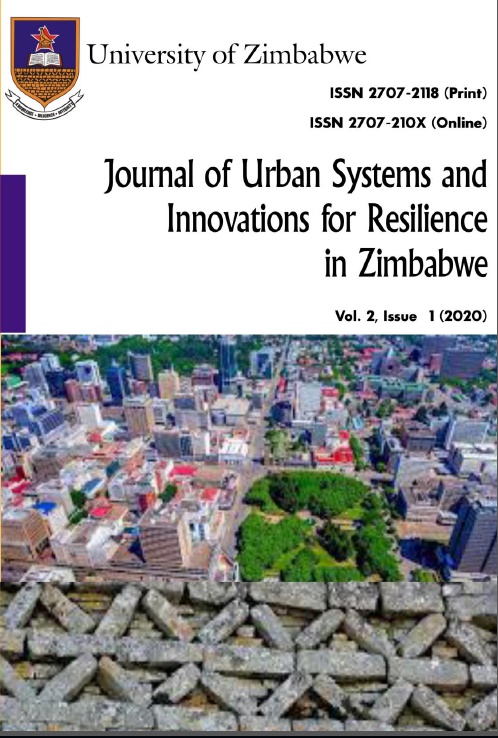Decentralised Energy Systems for Zimbabwean Cities: Dilemmas in Going Back to Where We Came From
Keywords:
electricity, grid, governance, nexus, environment, policy, sustainabilityAbstract
With reference to mixed methodologies involving document review, interviews and case studies, this article discusses decentralised energy systems as an option for Zimbabwean cities, which currently depend on a centralised and national grid system. It would seem that the problems of power-cuts and load-shedding then began. For harare, Bulawayo and Epworth, hereby used as case studies, it is noted that the different urban centres have varying challenges that include sustainable funding for the technologies like storage batteries. In terms of governance, centre-local politics and corruption tend to stifle initiatives around such innovations such that a mere technical issue then becomes a cobweb of messy political and power dilemmas. The country is enmeshed in a serious debt as it continuously faces challenges to clear such debt with neighbouring countries. Such a gap would easily be managed by decentralised electricity production systems by allowing industry and commerce to run smoothly in the country. It is suggested that a combination of macro-grid and micro-grid (decentralised) systems be fully embraced by Zimbabwean towns and cities, if sustainable electricity production and supply are to be achieved in the country.




